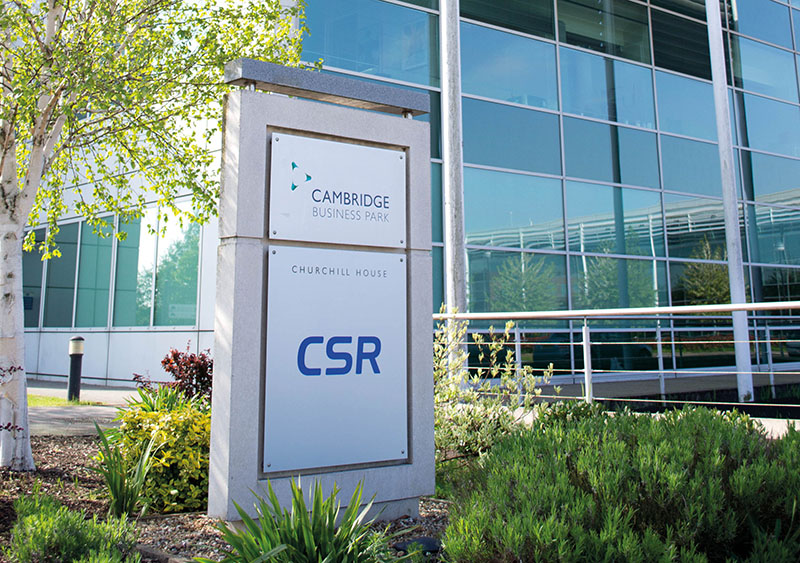It’s a testament to the Cambridge cluster, which has once more proven that it not only builds great tech, but great companies – over £12.5 billion spent on the top ten acquisitions. Cambridge Silicon Radio (later CSR) was founded in 1999 by nine former Cambridge Consultants employees with the express aim of fitting all the components needed to make Bluetooth work on to a single chip, something that until then the industry didn’t believe could be done.
CSR proved them wrong and the Cambridge start-up dominated the global Bluetooth market for years, at one point supplying more than 60% of Bluetooth chips in mobile handsets and headsets. It raised $84 million in funding in three years and then another £80 million when it floated in 2004 with a market cap of £240 million.
Falling margins and increased competition in its biggest markets forced a strategy shift into new markets and wireless standards which also included the sale of its handsets division to Samsung for $310 million in 2013. CSR still generated almost a billion dollars in revenues that year and has 2,130 employees worldwide.
In August this year, Microchip Technology came in with an offer for CSR, only to be outgunned by Qualcomm two months later in a deal valuing CSR at £1.56 billion. CSR has said the deal – a premium of two thirds over CSR’s average share price in the month before the Microchip approach – represents value in the mid-term, but in the longer term it believes it would have been worth more, reigniting the debate about whether Cambridge companies grow large enough.
It will be a shame to see it lose its independence, but the impending arrival across the other side of the city of a company with a market cap almost 40 times larger than CSR’s will soften the blow.

